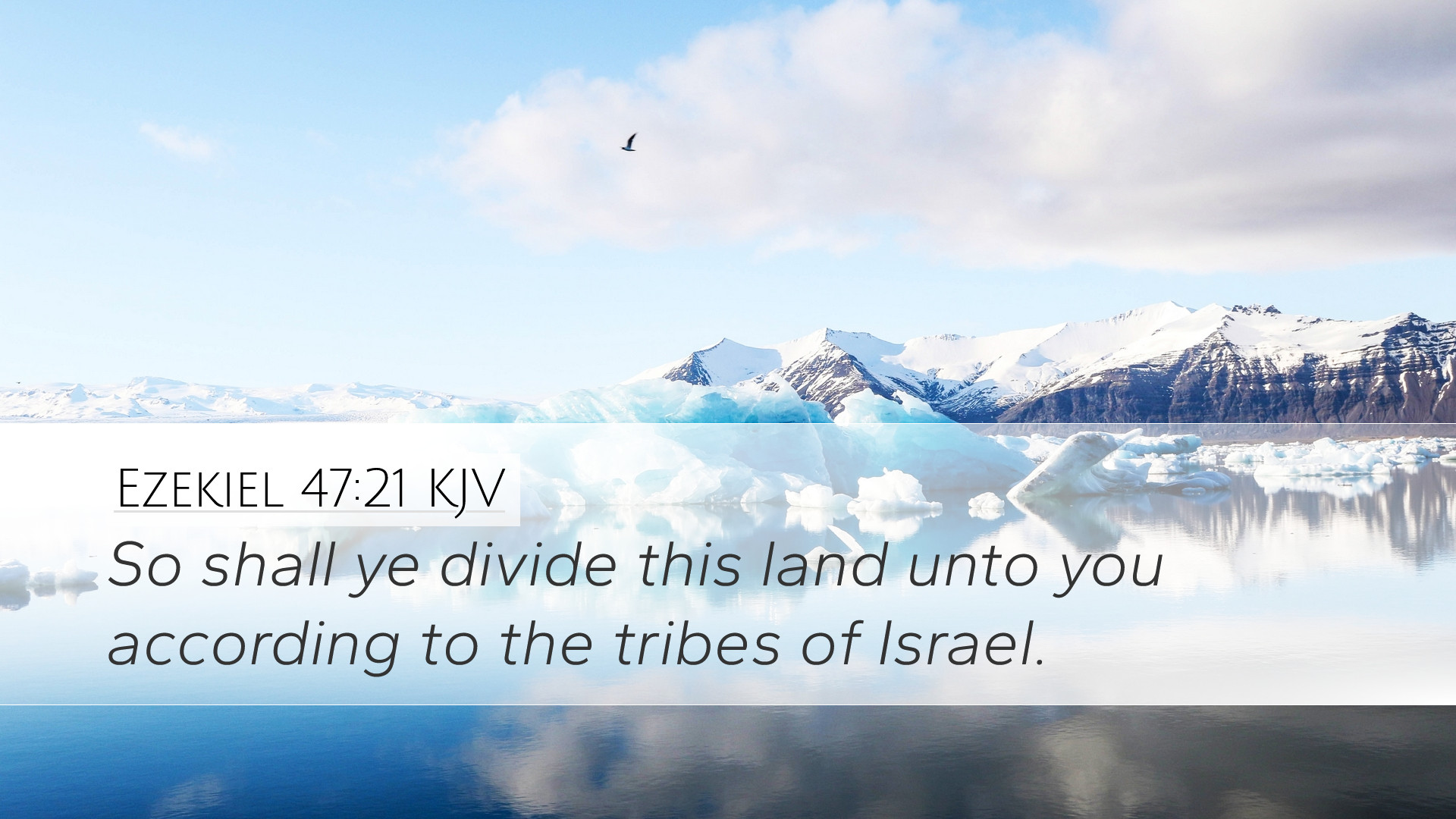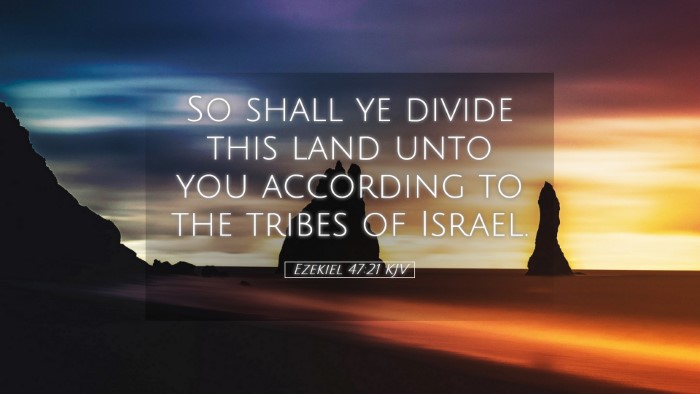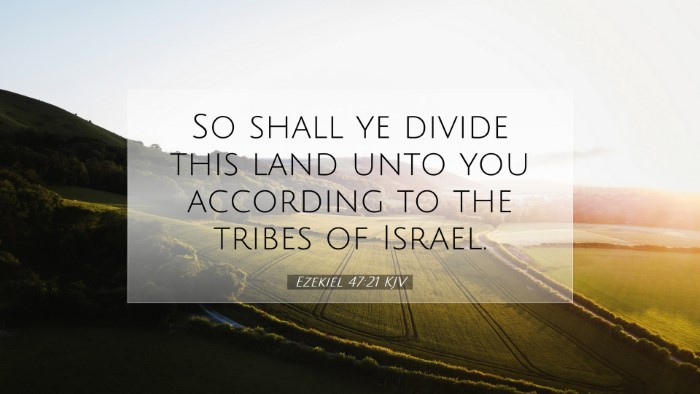Ezekiel 47:21 Commentary
Verse Text: "So shall ye divide this land unto you according to the tribes of Israel."
Introduction
The passage in Ezekiel 47:21 marks a pivotal moment in the vision given to the prophet Ezekiel regarding the restoration of Israel. This particular verse captures the essence of God's promise to His people, emphasizing their inheritance and the deliberate allocation of land according to the tribes of Israel. This commentary seeks to explore the theological implications, historical context, and pastoral applications of this verse, drawing insights from esteemed public domain commentaries.
Theological Insights
1. Divine Restoration:
Matthew Henry elaborates on the idea of restoration, emphasizing that this division of the land symbolizes God's faithfulness to His covenant with Israel. The notion that every tribe would receive its inheritance indicates God's redemptive plan, offering hope after a period of exile and suffering.
2. Inheritance and Identity:
Adam Clarke notes that the division of land is not merely a physical allocation but embodies spiritual significance. Each tribe's inheritance reflects their identity as God's chosen people. This theme of inheritance underlines the importance of recognizing one’s identity in Christ for the New Testament believer.
3. Unity Among Diversity:
Albert Barnes highlights how the division of land illustrates the unity of Israel's tribes despite their differences. Each tribe's inheritance reaffirms that while individual identities exist within the community of faith, they are all part of one body working towards a common purpose.
Historical Context
This passage is set against the backdrop of Israel's restoration post-exile, with Ezekiel being a prominent prophet during this transition. Matthew Henry provides a detailed historical lens, stating that the divisions of land in Ezekiel’s vision would address the injustices faced during the Babylonian captivity, presenting a future where God's people could dwell in peace and security.
Furthermore, the specificity of tribe allocations signifies not only justice but the re-establishment of tribal heritage which was crucial to the Israelite identity. Adam Clarke describes that the careful separation of territories was a means of preserving the lineage and inheritance long associated with the tribes of Israel.
Pastoral Applications
1. Assurance of God’s Promises:
This verse can provide comfort for believers facing uncertainty, reminding them that God fulfills His promises. Pastors can encourage congregants that, like the Israelites, they too have an inheritance that is secure in Christ (Ephesians 1:11).
2. Embrace of Identity:
In a contemporary setting, the notion of inheritance speaks profoundly to understanding one’s identity in Christ. Church leaders can focus on teaching the congregation the implications of being heirs to God’s kingdom, encouraging them to live in a manner that reflects their divine calling (Romans 8:17).
3. Community and Belonging:
Barnes’ insight on unity can be integrated into church teachings about the significance of belonging within the body of Christ. Emphasizing that each individual has a unique role while contributing to the larger community can promote inclusivity and respect among congregants.
Conclusion
Ezekiel 47:21 stands as a testament to God's unwavering faithfulness to His people. The division of land according to the tribes of Israel emphasizes the themes of restoration, identity, and communal unity. Insights gleaned from public domain commentaries enrich our understanding, providing both theological depth and practical applications for ministry. As we reflect on this passage, may we find encouragement in our own inheritance as children of God, continually seeking to understand our identity in Him and how we fit within His divine plan.
Key Takeaways
- God's faithfulness
- The importance of identity in Christ as heirs of His kingdom.
- A call to unity within the diversity of the body of Christ.


